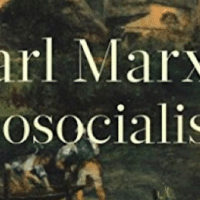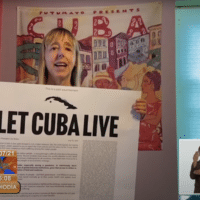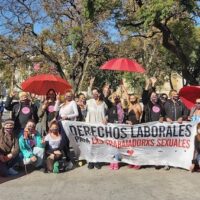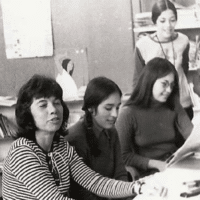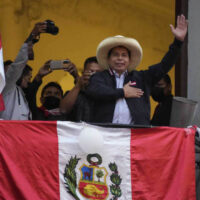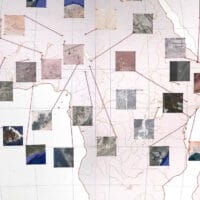-
Repressing radical protest, tolerating reactionary violence: The U.S. double standard in historical context
The following essay examines the different reactions to radical and reactionary protest, and situates them in a broader historical context. In doing so, we find that the capitalist state will tolerate reactionary violence to a large extent since it represents no threat to capitalist property relations. In contrast, when faced with radical (and particularly socialist) movements capitalist states engage in much more severe repression.
-
‘Karl Marx’s Ecosocialism: Capital, Nature, and the Unfinished Critique of Political Economy’ (2017)
This guide is designed to help understand the central ideas in Kohei Saito, Karl Marx’s Ecosocialism: Capital, Nature, and the Unfinished Critique of Political Economy. New York: Monthly Review, (2017)
-
Let Cuba Live—The movement standing up to Biden’s maximum pressure campaign
On July 22, U.S. President Joe Biden and his Vice President Kamala Harris released a “fact sheet” on U.S. “measures” against Cuba. The release from the White House said that Cuba was a “top priority for the Biden-Harris administration.”
-
Sex workers and COVID-19: Resisting the pandemic and criminalization
Georgina Orellano, secretary-general of the Association of Women Sex Workers of Argentina (AMMAR), says that “the pandemic has highlighted the inequality” in society and deepened the problems faced by sex workers. Sex work, which is not recognized in Argentina, has become more precarious, she says.
-
Serve the People: The eradication of extreme poverty in China
On 25 February 2021, the Chinese government announced that extreme poverty had been abolished in China, a country of 1.4 billion people. This historic victory is a culmination of a seven-decade-long process that began with the Chinese Revolution of 1949.
-
Strange: challenging pandemic logics
In 2020, the U.S. government perpetually wavered in acknowledging COVID-19 as a real danger. We lived through screens, bombarded by commercial messages professing how corporations were here for us, how we were in this together, that we should be optimistic. This is strange, indeed, but to be more specific about a pandemic’s root causes would not sell products and would not reassure people to go back to normal.
-
A happy warrior + Esther Bejarano + Presente: Berlin Bulletin No. 193 July 20, 2021
Esther Bejarano’s death hits hard, leaving a painful gap in Germany’s anti-fascist scene. Most media and many politicians voiced their praise and mourning—after almost totally ignoring her in life and attacking and trying to squelch organizations she was active in, as an avowed Communist.
-
Jack and Jill tumble: Berlin Bulletin No. 192, July 3, 2021
After legally receiving a Christmas gift of 24,000 euros from her party, Annalena Baerbock somehow neglected to report it in her tax returns. No big deal, some might think, but after the scandals about Christian Democrats nobly enriching themselves when purchasing face-masks, and two far bigger scandals hanging over the head of the Social Democrats’ chancellor candidate Scholz (currently still Finance Minister), the squeaky clean reputation of the Greens had been a major asset. No longer!
-
Donald Rumsfeld—RIP: Berlin Bulletin No. 191, July 3, 2021
Don’t speak ill of the dead, they say, but if I were to choose candidates for a Hall of Evil Fame, I’d have to ignore such advice; the late Donald Rumsfeld would be close to the top of my list.
-
#BetitaTaughtUs: Chicanisma and El Movimiento
With deep sadness and respect, Organizing Upgrade is sharing a few more tributes to movement elder Betita Martinez, who died June 29. In her 95 years she lived many lifetimes, and brought her commitment, wit and political clarity to several of the most significant social movements of our day.
-
The United States tries to take advantage of the price Cubans are paying for the blockade and the pandemic
This small island of 11 million people has created five vaccine candidates and sent its medical workers through the Henry Reeve International Medical Brigade to heal people around the world.
-
Cuba faces looting, whose hands are behind it?
The Cuba “protest-story” is not a single incident. Similar foreign interference happened in other countries. The Cuba-protest-incident is not going to be last attempt by the Empire.
-
There’s a dirty tricks campaign underway in Peru to deny the Left’s presidential victory
The campaign to overturn Peru’s presidential election results is one of “unconventional warfare.”
-
The institutional murder of Fr. Stan Swamy
This is not a natural death, but the institutional murder of a gentle soul, committed by an inhuman state.
-
Dossier No. 42: Defending our sovereignty: U.S. military bases in Africa and the future of African unity
Neo-colonialism, Nkrumah noted, seeks to fragment Africa, weaken African state institutions, prevent African unity and sovereignty, and thereby insert its power to subordinate the aspirations of the continent for pan-African consolidation.
-
Revolutionizing the narrative: Building a principled Pakistani solidarity movement for Palestine
As part of the ongoing Nakba, Israel has once again unleashed its latest reign of terror on Palestine, in response to resistance by Palestinians against ethnic cleansing of the Sheikh Jarrah neighborhood in East Jerusalem (meant to eviscerate both Palestinian social and cultural life from the city).
-
Small State but big questions
A week ago Saxony-Anhalt voted! The media prediction – a neck-and-neck race – was cock-eyed! But outside Sachsen-Anhalt (in German), did anyone really give a damn? Yes, some did!
-
The Modern Tecumseh and the Future of the U.S. Left
Tecumseh was killed at the Battle of the Thames in 1813. His dream of an Indigenous confederacy largely died with him. Yet his appreciation of the moment and the possibilities for transformation lived on and should give us all pause.
-
Dossier no. 41: The farmers’ revolt in India
India’s big capital, in close cahoots with the political class, took advantage of privatisation policies to seize public resources (including profitable public sector assets), acquire vast tracts of land by displacing village and forest communities, control the nation’s mineral resources, and undermine public sector banks through a cascading set of fraud and non-payment schemes.
-
Americans must recognize economic classes
There appears to be a reluctance in the United States to wear the mantle of “working class.” Its connotation appears to be a relic from the economic revolutions of Europe in the late nineteenth century. However, they remain the economic class that built the nation’s now failing economy.


